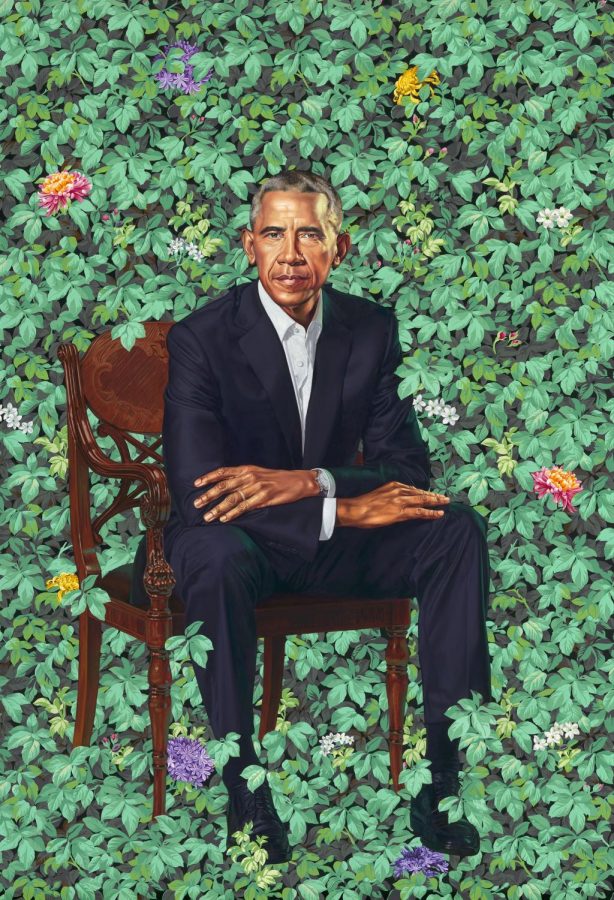History professors discuss former President Obama’s legacy
Photo Courtesy by Smithsonian National Portrait Gallery
Barack Obama by Kehinde Wiley, oil on canvas, 2018. National Portrait Gallery, Smithsonian Institution. The National Portrait Gallery is grateful to the following lead donors for their support of the Obama portraits: Kate Capshaw and Steven Spielberg; Judith Kern and Kent Whealy ; Tommie L. Pegues and Donald A. Capoccia
March 15, 2018
On Feb. 22, students and community members joined history professors Dr. Jill Watts and Dr. Kimberly Quinney in Markstein 214 to discuss the meaning of Barack Obama’s presidency to observe Black History Month.
Dr. Watts and Dr. Quinney discussed what they believe Obama’s presidential legacy means.
In the beginning of the event, Dr. Watts said how she believes that Obama’s victory in 2008 was important, symbolic and inspiring.
She said, “I was born in an America that was deeply segregated and African-American people were disenfranchised and I was raised in an African-American church, within the black community.
So Obama’s election was incredibly symbolic of possibilities. I found his victory profoundly renewing and empowering.”
Dr. Watts pointed out the criticisms of FDR’s 1930s black cabinet are similar to the criticisms of the Obama Administration.
She said, “With the end of the New Deal… during [World War II] eventually their positions are eliminated they [the black cabinet] are pushed out. At the end of that, people said the cabinet was a failure, they didn’t accomplish what they set out to achieve.”
Obama faced racial criticism, Dr. Watts noted. A slogan with the text “hang in there, Obama” with a hangman noose depicted next to it was one example. Attacks on his national origin and religion were other examples of racially charged criticism. Dr. Watts said the Obama administration should receive credit for stopping the recession.
She said, “he inherited the worst economic downturn since The Great Depression. He brought the economy back, that’s a big accomplishment.”
Dr. Quinney was critical of Obama’s decision to allow Syria to break international law by using chemical weapons in its ongoing civil war.
She noted that Obama was not a pacifist, and said he authorized 542 drone strikes, killing 4,000 people, including 300 civilians overseas but backed down from the chemical weapons issue.
Regardless of views, the historians said they agreed that history is never fixed, and the meaning of events change over time. We will have to see what the future holds in order to fully understand the legacy of the first African-American president of the U.S.


